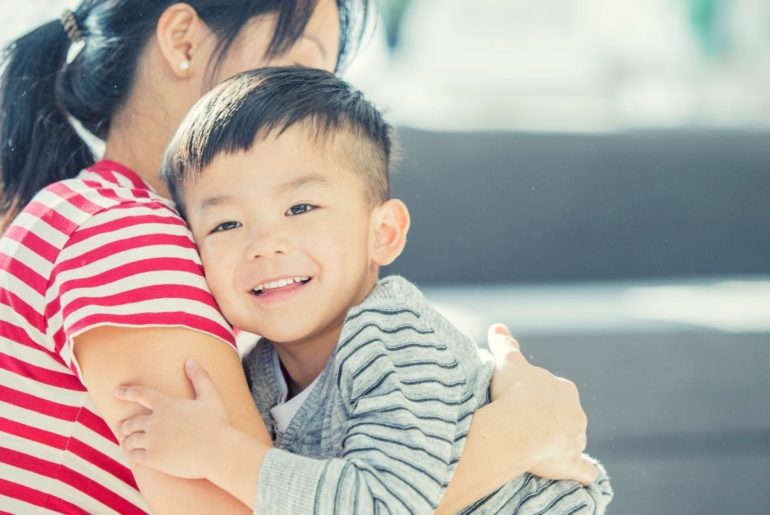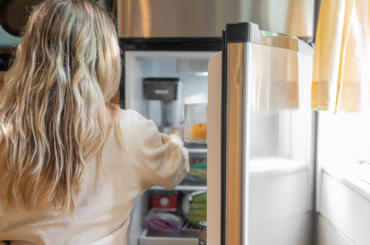Kids have a natural instinct to help and care for others—but we also need to encourage this compassion and help it grow. With all that’s happening in the world these days, kids need us as compassionate role models and coaches.
Sounds great, but how do we teach such a fuzzy subject? UC Berkeley’s Greater Good Science Center shared some concrete, science-based methods for nurturing kindness in kids—including these 16 specific things you can say to kids in different situations to help them grow and practice compassion.
Start by explaining to kids what compassion is:
“Compassion is the feeling we have when we notice someone is suffering and we want to help.”
Brainstorm some examples together of times they might be able to offer help. Then explain the benefits of compassion:
“When we use our compassion to help people, we not only make our community a better place, but we also feel happier, healthier, and more connected to others.”
Teaching our kids to be compassionate involves two main things:
- Helping them think kind thoughts about themselves and others
- Teaching them to act in a kind way toward themselves and others
Next are three steps for doing exactly that, along with specific phrases you can use.
Teach them about receiving compassion.
Receiving compassion from others helps kids understand how powerful it is—and how great it feels! When kids receive compassion, it builds their confidence and sense of worth, and in turn teaches them to be caring.
To instill in your child that they have inherent value and are worthy of care:
- Listen to and acknowledge their struggles
- Make sure they know they can count on you
- Encourage them to think about other supportive grownups and remember times they felt cared for
Here are some things you can say:
- “I’m sorry you’re having a tough time. Do you want to tell me more about what happened?”
- “I know how hard this can be. Do you need a hug?”
- “I’ll be here if you need any help, or if you just want to talk.”
- “Do you remember when you fell down on the playground and your teacher helped you?”
- “Can you think of any other grownups who are good listeners or good helpers?”
Teach them to practice self-compassion.
To make sure your kids are compassionate to others, they need to know how to be kind toward themselves whenever they’re struggling with a hard situation or big emotion.
You can help kids:
- Pause and acknowledge what they’re experiencing in challenging times
- Recognize they’re not the only ones who have these feelings
- Be kind to themselves
Here are some things you can say:
- “If you’re struggling with something, stop and just say to yourself, ‘I’m having a hard time, and that’s OK.’”
- “Remember that other people have trying moments, too—you’re not alone! That’s definitely something everyone has in common.”
- “It’s OK to cry and give yourself a hug. I’ve done it before.”
- “Give yourself a break—remind yourself, ‘I can do my best and ask for help if I need it.’”
- “Everyone has challenges—and after you get through this one, maybe you’ll be able to help someone else with theirs.”
Teach them to extend compassion to others.
How do we make compassion a habit? One way is to notice when people could use help, point it out to your child, and demonstrate how to offer help.
But those chances don’t come up all the time—so another great way to emphasize thinking about others’ feelings at home and beyond is by practice loving-kindness meditation. Here’s how:
- First, get in a comfortable, relaxed position.
- Then, offer kind wishes toward yourself.
- Then, think kind thoughts toward a friend or someone close to you.
- Then, imagine someone you don’t know well and wish them well in your mind and heart.
- Finally, wish kindness widely to everyone everywhere.
Here are some kind wishes you and your child can use during “loving-kindness meditation” practice:
- “May I be healthy.”
- “May you be safe.”
- “May you get the help you need.”
- “May you do something joyful today.”
- “May everyone in the world feel loved.”
- “May all beings everywhere be peaceful.”
This practice helps kids understand that all people want to be healthy and happy—just like they do!







